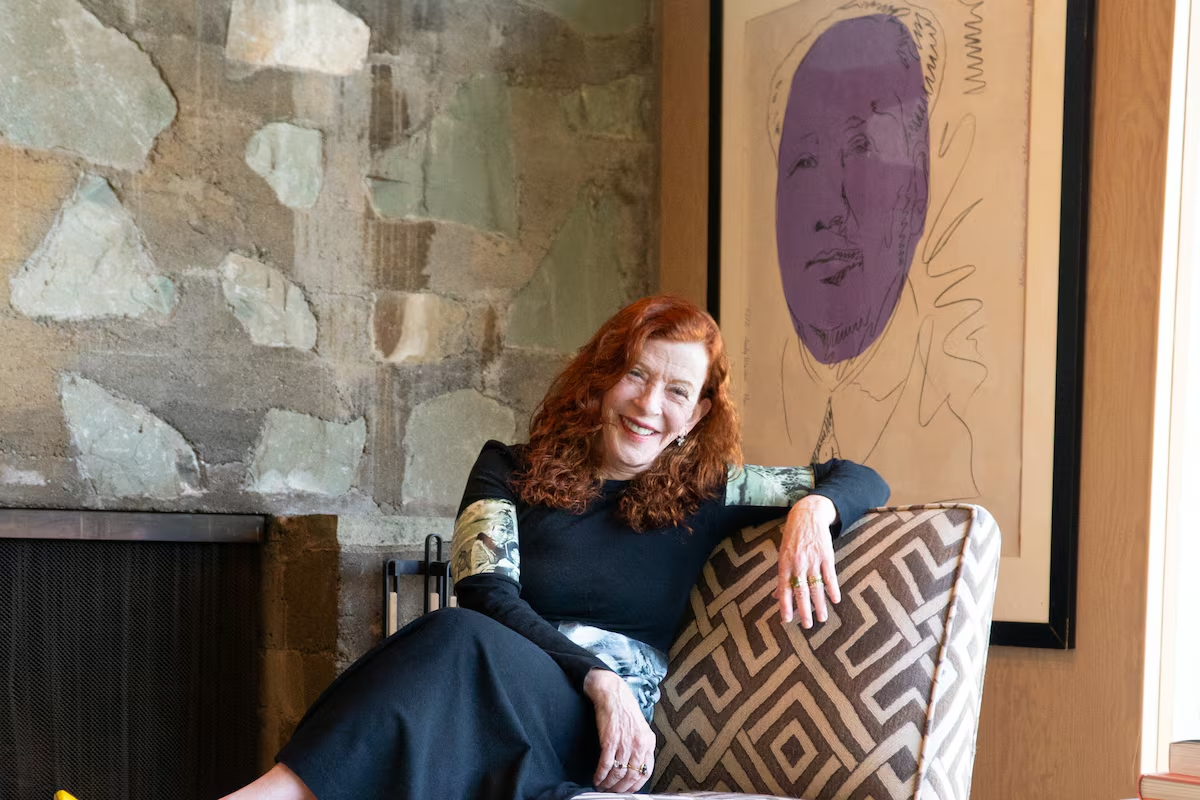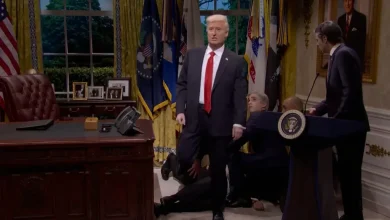Susan Orlean dishes on Tina Brown, tackling betrayal and writing her new memoir, Joyride

Open this photo in gallery:
Susan Orlean poses in her Los Angeles home, in September.Jameson Baldwin/Reuters
“What matters in a piece of writing is to acknowledge the fingerprints the writer leaves on the story. That is what makes a piece of writing true,” Susan Orlean writes in her new memoir.
If that’s the case, then the long-time New Yorker writer’s body of work is the ultimate truth-tellers’ crime scene. Whether she’s writing about orchid thieves, dog actors, gospel groups or cult leaders, Orlean has always had a gift for making the world’s odd corners feel universal; no dusting required to see her ubiquitous fingerprints.
Books we’re reading and loving in November
Her own life has always shimmered behind the curtain of her stories, so some may find it surprising that Joyride is her first fully fledged memoir. Beginning with a Midwestern upbringing by Jewish parents who supported her but barely tolerated each other, Orlean’s book interlaces what she calls “the story of my stories” with a backstage view of her two marriages, her writing process and dealings with various editorial icons. (Rare is the journalist who ends up portrayed by Meryl Streep, as Orlean was in Spike Jonze’s adaption of The Orchid Thief.)
Orlean lives in Los Angeles. She spoke to The Globe from New York.
Open this photo in gallery:
In Joyride you describe the kinds of subjects you choose for your articles and books as typically teetering on catastrophe in some way. What do you mean by that?
I like to choose subjects that aren’t the big, bold headline kind. The stories that are not obvious, the stories that maybe at first glance you can’t understand why you would think about reading them. Those are the stories I genuinely want to do. I’m also aware that not everybody’s mind works the way mine does. Not everybody is going to be curious about people who steal orchids.
I know it’s up to me to convey to the reader why they should overcome their reluctance and read this story anyway. And that’s where the pressure comes in, because that’s a big demand to put on the writing, to say it’s not enough to just think of a good story, but you also have to sell it and sell it very hard to the reader.
You write about always trying to approach your subjects as an outsider. To go in with minimal research and no agenda. On the flip side, you also describe getting so close to your subjects that you fall in love with them, proverbially, or they fall in love with you – less proverbially. Have you developed a feel for that tipping point?
I suppose the moment you begin worrying what your subject will think of the story is the moment when you’ve kind of slopped over. I’m not a kind of drive-by shooter. I care what my subjects think of the story, but when it becomes a preoccupation, then you know you’ve lost some of the distance you need.
There’s also that the inevitability of you parting company – which is of course what happens at the end of a story – is going to become confusing and difficult for them as much as for you.
I think if you’re too good at gaining people’s trust and being their intimate, you’re almost at a disadvantage, because when you go to write your story and look at them with more objectivity, it’s going to come as a real shock. This is something that has been analyzed and written about by people who write narrative non-fiction, by documentary makers. It’s a complicated moral tipping point.
The spark that ignited author Susan Orlean’s The Library Book
Has a subject ever told you they felt betrayed by what you wrote about them?
Oh, yeah. I mean, luckily it hasn’t happened often. But one time comes to mind. I was shocked because I thought the story I wrote was an incredibly loving portrayal of this woman and she was really offended. And I was so mystified.
Speaking of betrayal – you write very frankly about your first marriage, including the cheating that went on. Do you think you’d have written about all that so openly had your ex-husband not passed away?
I’ve thought about that a lot. Of course, it’s impossible to really answer. I think it would have been really difficult. And I think I would have had to do something, whether it was to just tell him I was doing it or talk about it with him. I think quite often people write memoirs in which someone doesn’t look very good. So it’s almost part of the very nature of memoir.
You’ve worked with several New Yorker editors, but I was especially interested in what you had to say about Tina Brown, who came in as a kind of great disruptor. I get the impression you appreciated a lot of what she did for the magazine but that you never felt entirely relaxed around her. Is that true, and have you stayed in touch?
Well, we’re not like buddies, but I saw her not that long ago and we very warmly greeted each other. And I’m always aware of what she’s up to. You could make the argument that if she hadn’t come in and stirred things up, The New Yorker may not have been celebrating its hundredth anniversary this year. She pushed it into the modern era. And much of what she did, I think, was necessary and good.
She’s not somebody who makes you feel relaxed, and I think that’s intentional. I don’t think she would ever say: I like people to be uncomfortable and anxious. I think she’s impatient and has strong opinions and people fall in and out of her favour at a pretty regular pace. Knowing that, it’s like a cow who lives next door to a slaughterhouse: You’re seeing it happen and it’s not like anybody has told you that you’re next, but you can’t help but project and think, “Uh-oh.”
But except for the level of pressure, which I found pretty unbearable, she was a fantastic editor and really, to her credit, overrode her misgivings about the kinds of stories I like to do and let me do them.
You forged a very specific path to working at the big American glossies, along with their big budgets. That being a world that doesn’t exist any more, what advice do you give to aspiring non-fiction writers?
It definitely is not the same path in that the minor leagues – which I think of as alternative news weeklies and small-city magazines – mostly don’t exist. I haven’t yet retooled my advice for this day and age because I’m honestly not sure yet what that looks like. Which is not to say I don’t think anyone can be a writer any more. I don’t feel that, but I’m not sure I yet understand the path in the current landscape. I’m not sure that I would say, “start a Substack. Do this, do that.” I think I need to think and observe a little more before I give a new version of my writing career advice.
This interview has been edited and condensed.





